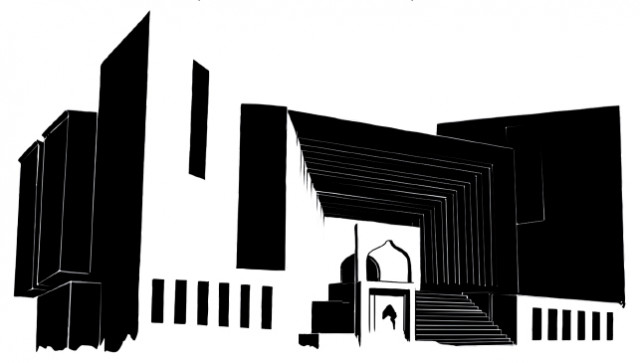Contempt law: Outlawed
No immunity for Prime Minister Ashraf on August 8.

A five-member bench, led by Chief Justice Iftikhar Muhammad Chaudhry, read out its verdict striking down the contentious Contempt of Court Act 2012 on Friday – a clear declaration that the court has the right to hold anyone in contempt, regardless of their office.
While the Act was ultimately struck down in its entirety, the court did not find issue with all its clauses, but observed that keeping the remaining clauses wouldn’t serve much purpose. “After having found various provisions of Contempt of Court Act 2012 as ultra vires the Constitution, we are of the opinion that the remaining provisions of the impugned legislation, if allowed to stay on the statute book, would serve no purpose….,” read the court order.
The court, in its 21-page short order, also observed that the government’s defence had, itself, admitted that the law was made to protect the new prime minister following his predecessor’s disqualification for contempt.
Former prime minister Yousaf Raza Gilani had been found guilty of contempt in June for not following court orders to write a letter to the Swiss authorities regarding graft cases against President Asif Ali Zardari, and was subsequently disqualified, and his cabinet dissolved. His successor, Raja Pervaiz Ashraf, was given the same instructions shortly after taking oath as the new premier – and has thus far shown the same unwillingness to obey the court’s orders on the Swiss letter matter. This matter, being taken up in the National Reconciliation Ordinance (NRO) implementation case, has been adjourned till August 8.
The last hearing of the NRO implementation case took place when the contempt law 2012, which offered immunity to the prime minister from contempt proceedings, was still in place. The new contempt law prescribed, among other things, immunity for the president, prime minister, governors, chief ministers as well as federal and provincial ministers from contempt charges. It had also prolonged the appeal procedure, and even allowed for criticism of judges. The new law had been challenged almost immediately by over two dozen petitioners, before it was shot down on Friday.
Now, on August 8, the matter of the premier’s refusal to write the Swiss letter will be heard under the old contempt law, under which Gilani was shown the door.
The court’s short order also pointed out that the law had been passed in haste – for the obvious reasons of protecting the new prime minister, as was admitted by the government’s counsel Abdul Shakoor Paracha and Attorney-General Irfan Qadir. The court order pointed out the language of the act as an indicator of the haste in which it was framed and ultimately passed.
The court also held that, through the enactment of the new act, “…attempt has been made to reduce the powers of the court as has been indicated in different provisions…,” adding that section 12 of the new act is contrary to Article 204(3) of the Constitution that gives power to the court to frame rules for its contempt proceedings.
It added that the proviso (i) to section 3, which grants exemption to the public office holders mentioned in Article 248(1) from contempt of court, is violative of Article 25 as under Article 204(2), the Court is empowered to punish any person for contempt without any exception.
As for the appeal time, it was observed that limitation of 30 days for filing an appeal to a bench of the high court, 60 days for filing appeal to the Supreme Court, and filing of intra-court appeal or application for re-appraisal within 30 days from the date of show cause notice or the order, are aimed at delaying decisions in contempt cases and compromise expeditious disposal of such cases to restore the dignity of the courts.
(Read: SC’s verdict on contempt law)
Published in The Express Tribune, August 4th, 2012.



















COMMENTS
Comments are moderated and generally will be posted if they are on-topic and not abusive.
For more information, please see our Comments FAQ